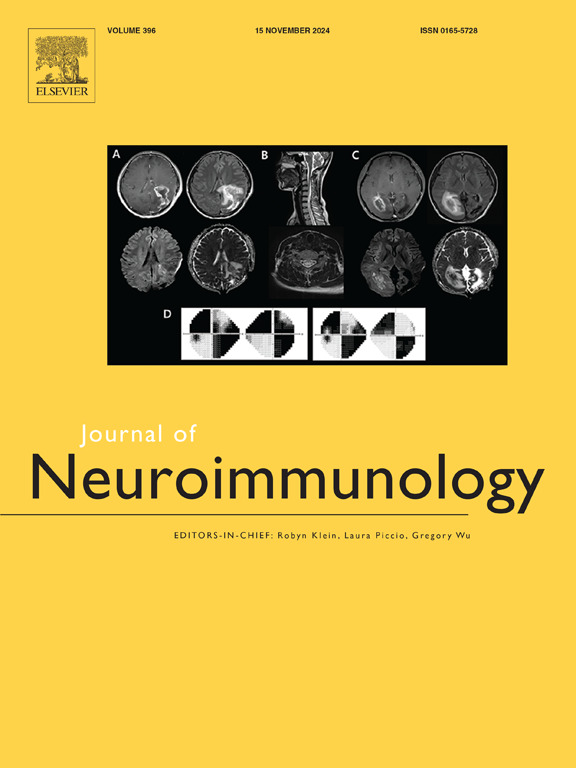Neuroinflammation and schizophrenia: The role of Toxoplasma gondii infection and astrocytic dysfunction
IF 2.9
4区 医学
Q3 IMMUNOLOGY
引用次数: 0
Abstract
Obligate intracellular pathogens such as the protozoan Toxoplasma gondii exploit host cell mechanisms to facilitate their survival and replication. While T. gondii can infect any nucleated mammalian cell, it exhibits a particular affinity for central nervous system cells, including neurons, astrocytes, and microglia. Among these, astrocytes play a pivotal role in maintaining neuroimmune balance, and their infection by T. gondii induces structural and functional alterations. Emerging evidence suggests that these changes may contribute to the pathophysiology of schizophrenia (SCZ). Although a direct causal link between T. gondii-induced astrocytic dysfunction and SCZ remains unproven, infection has been associated with increased kynurenic acid production, elevated dopamine levels, and heightened inflammatory cytokines—all of which are implicated in SCZ pathology. Additionally, T. gondii infection disrupts crucial neurobiological processes, including N-methyl-d-aspartate receptor signaling, blood-brain barrier integrity, and gray matter volume, further aligning with SCZ-associated neuropathology. This review underscores the need for targeted research into T. gondii-mediated astrocytic dysfunction as a potential factor in SCZ development. Understanding the mechanistic links between T. gondii infection, astrocytic alterations, and psychiatric disorders may open new avenues for therapeutic interventions.
神经炎症和精神分裂症:刚地弓形虫感染和星形细胞功能障碍的作用
专性细胞内病原体,如原生动物弓形虫,利用宿主细胞机制促进其生存和复制。虽然弓形虫可以感染任何有核的哺乳动物细胞,但它对中枢神经系统细胞,包括神经元、星形胶质细胞和小胶质细胞表现出特别的亲和力。其中,星形胶质细胞在维持神经免疫平衡中起关键作用,弓形虫感染星形胶质细胞可引起结构和功能改变。新出现的证据表明,这些变化可能有助于精神分裂症(SCZ)的病理生理。虽然弓形虫诱导的星形细胞功能障碍与SCZ之间的直接因果关系尚未得到证实,但感染与犬尿酸生成增加、多巴胺水平升高和炎症细胞因子升高有关,所有这些都与SCZ病理有关。此外,弓形虫感染破坏了关键的神经生物学过程,包括n -甲基-d-天冬氨酸受体信号、血脑屏障完整性和灰质体积,进一步与scz相关的神经病理学一致。这一综述强调了有针对性地研究弓形虫介导的星形细胞功能障碍作为SCZ发展的潜在因素的必要性。了解弓形虫感染、星形细胞改变和精神疾病之间的机制联系可能为治疗干预开辟新的途径。
本文章由计算机程序翻译,如有差异,请以英文原文为准。
求助全文
约1分钟内获得全文
求助全文
来源期刊

Journal of neuroimmunology
医学-免疫学
CiteScore
6.10
自引率
3.00%
发文量
154
审稿时长
37 days
期刊介绍:
The Journal of Neuroimmunology affords a forum for the publication of works applying immunologic methodology to the furtherance of the neurological sciences. Studies on all branches of the neurosciences, particularly fundamental and applied neurobiology, neurology, neuropathology, neurochemistry, neurovirology, neuroendocrinology, neuromuscular research, neuropharmacology and psychology, which involve either immunologic methodology (e.g. immunocytochemistry) or fundamental immunology (e.g. antibody and lymphocyte assays), are considered for publication.
 求助内容:
求助内容: 应助结果提醒方式:
应助结果提醒方式:


